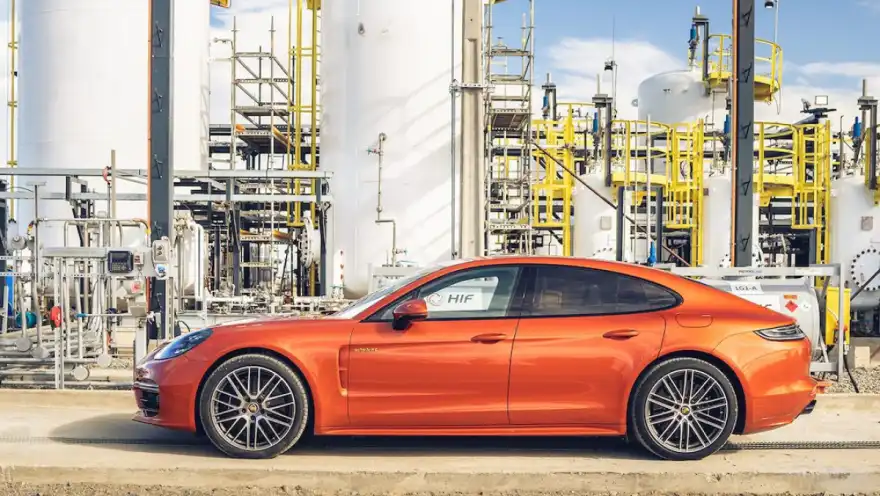
With the impending ban on new pure-combustion cars in the UK, attention is turning to alternative fuel options alongside the shift towards electrification. E-fuels, a type of synthetic fuel, are gaining traction as a potential player in the quest to cut transport emissions.
Manufacturers and governments are exploring various fuel options, including hydrogen, but e-fuels and biofuels stand out as prominent contenders. E-fuels, short for 'electrofuels,' are synthesised using 'green' hydrogen and carbon, often sourced from biomass waste or captured CO2.
So, how exactly are e-fuels made? Essentially, they're produced by electrolyzing water to obtain hydrogen and oxygen, then combining this hydrogen with captured CO2 through chemical synthesis.
E-fuels boast carbon neutrality, meaning they offset their emissions by removing atmospheric carbon during either biomass growth or capture. This quality positions them as a promising alternative for car manufacturers like Porsche, which sees them as a potential complement to all-electric power.
What are the advantages and disadvantages of e-fuels?
E-fuels offer several benefits. They can power existing vehicles without requiring modifications and are compatible with heavy goods vehicles and vans. Unlike hydrogen and electric solutions that demand new infrastructure, e-fuels can seamlessly integrate into the existing fuel supply chain and refuelling stations.
However, there are drawbacks. E-fuels come with a hefty production cost and currently can't be manufactured at scale. Despite being cleaner to produce, they still emit environmentally harmful gases similar to conventional fuels. Additionally, their production process demands significant energy, particularly in generating the required hydrogen.
Who's investing in synthetic fuels?
Porsche leads the pack in e-fuel investment, pouring millions into pilot production projects. Other car manufacturers, including Volkswagen, Mazda, and Ferrari, express interest in synthetic fuels, seeing them as potential allies in extending the life of combustion engines.
What lies ahead for synthetic fuels?
While the UK government hasn't officially incorporated e-fuels into its emissions reduction strategy, there's growing recognition of their potential, especially in light of challenges facing the widespread adoption of electric vehicles. Despite concerns about their environmental impact and energy requirements, the momentum for synthetic fuels continues to build globally.
Incentives could be a crucial driver for scaling up carbon-neutral fuel production, yet the current lack thereof poses a significant hurdle. Addressing this issue, along with fostering collaboration between industries, will be key in realising the potential of synthetic fuels in reducing car emissions.




